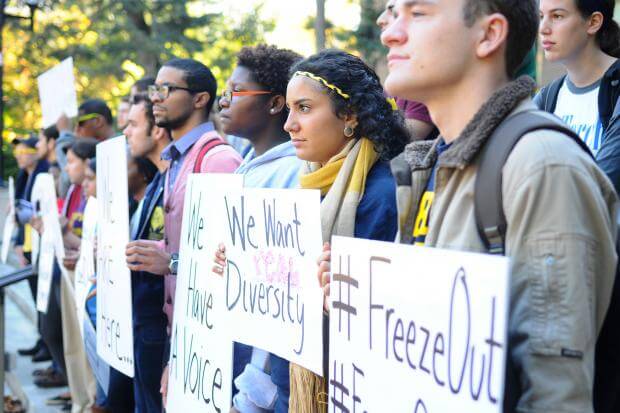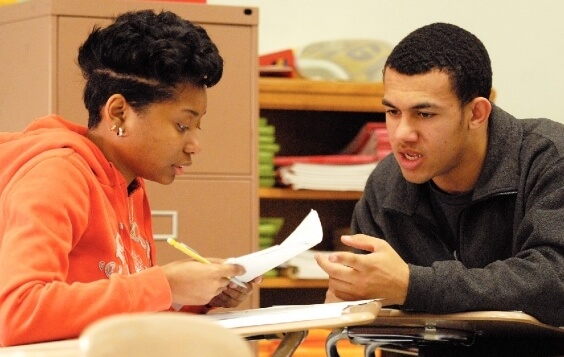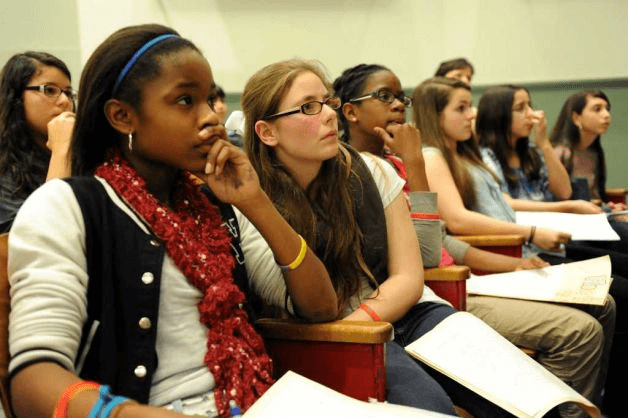So, you’re stuck taking an ethnic literature class this semester. Before you make plans to skip every day and get notes from friends, hear me out on why you should instead reserve a front row seat. Liberal arts colleges are notorious for requiring enrollment in a variety of classes before you can graduate. It may be because they want more money from you, or perhaps because they actually think you’ll benefit from learning a thing or two about math, science or Native American studies. I’m going to go with the latter. You can chase me down with your pitchforks later, but taking an ethnic lit class can change your perspective for the better. This semester, drop your traditional English lit class on the lives of 16th century white guys, and add an ethnic lit class focusing on writers during the Harlem Renaissance. If I still haven’t convinced you, maybe these five reasons will.
1. It Will Introduce You to the World

Sometimes traditional literature classes lack the perspective of how challenging the world around us can be. With required readings that focus on the fanciful lives of the Victorian era, students struggle to understand less picture-perfect stories written by people from other cultures and locations. Reading Amy Tan’s “The Joy Luck Club“ welcomes students into the world of Chinese-American families living in San Fran, while Juno Diaz unveils the truth of the Dominican diaspora in “The Brief Wondorous Life of Oscar Wao.” Ethnic lit classes will push you out of your comfort zone and shine a light on struggles that people from the other side of the globe may experience.
2. It Will Drive You To Action

Never been one to openly stand up for a hot-button social issue? Very comfortable with keeping your opinions to yourself? That tendency will dissipate with every passing day you go to your ethnic literature class. Many of the stories written by ethnic writers are either based on true events or are in fact true events (with a name change or two). So when that reality slaps you hard in the face, you’re sure to feel inclined to make a change. It could be simply joining a student org fighting for African American rights or changing your entire course of study to become an ethnic studies major ─ regardless; you’ll become your school’s newest activist.
3. It Will Make You Mad, For the Right Reasons

After taking my first African literature class, I noticed my attitude changing with every text I was assigned to read. Chisi Ndjurisiye Sichyajunga’s internal slavery story had me gasping with every fateful moment of her life. Can Themba’s “The Suit“ placed me in the middle of a failing marriage during the struggle to end apartheid. Learning of the injustices occurring in foreign lands and the political uproar causing citizens to lose everything, I became angry. I couldn’t believe that this is how people lived (and still live), and was confused as to how I was once enraptured by the Romeos and Juliets that typical lit classes offer. My anger fueled me to research more, consistently go to my professor’s office hours and share what I’d learned with anyone I met.
4. It Will Open Your Eyes and Ears

Signing up for an ethnic lit class is the equivalent to getting a giant Q-tip and cleaning out your ears once and for all. You’ll be more willing to face and take seriously some darker stories of your own community once you’ve had the practice with stories from your class. Hearing experiences from the source is incomparable to hearing stories regurgitated from writers who can’t identify with the race or varying cultures. “We address very charged issues in these classrooms, and it is not always comfortable to question dominant narratives of American history and American identity—but these are really important conversations to have,” said Humboldt State University’s multi-ethnic American literature professor Christina Accomando. Studying multi-ethnic literature can help us understand our history and our contemporary moment with more clarity and complexity.
5. It Will Make You Rich

Well, maybe not monetarily rich, but rich in character. After taking an ethnic studies class, you’ll be prepared to better understand the world and its many complexities. You’ll have heard from the voices of historical writers from many different backgrounds and have new insights about how to socially and politically approach the world. “Right now, one of the leading contenders for the Republican presidential nomination is arguing that we should eliminate birthright citizenship. Studying authors from Frederick Douglass to Gloria Anzaldua can give us some powerful lenses to understand and counter such narratives of who gets to be an American,” said Accomando. Forget resume builders, taking a class like this is good for your soul.



















